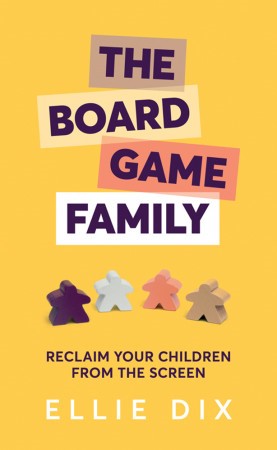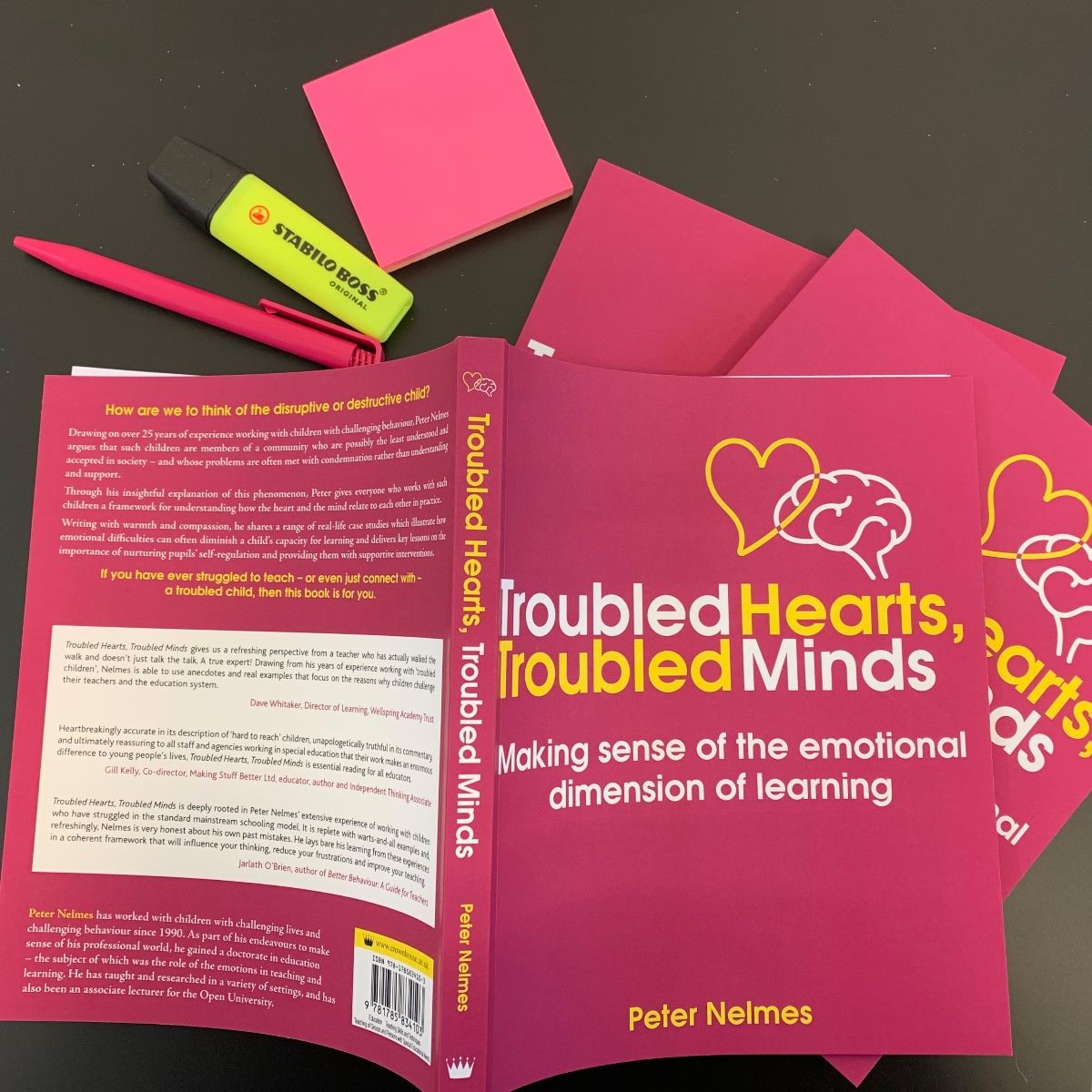New Titles form Crown House Publishing
The Board Game Family - Reclaim your children from the screen

When you have teenagers or older children in the house, going an entire week without having a proper conversation with them is not unusual. In fact most conversations with teenagers are transactional: arranging lifts, lending money, negotiating meals and helping with homework.
In The Board Game Family, teacher and educationalist Ellie Dix aims to help fellow parents by inviting them and their families into the unplugged and irresistible world of board games. The benefits of board gaming are far-reaching; apart from allowing you to have real, meaningful conversations with your kids, playing games develops interpersonal skills, boosts confidence, improves memory formation and cognitive ability and refines problem-solving and decision-making skills.
With these rewards in mind, Ellie shares a wealth of top tips and stealthy strategies that parents can draw upon to unleash the potential of those dusty game boxes at the back of the cupboard and become teachers of outstanding gamesmanship – equipped to navigate the unfolding drama of competition, thwart the common causes of arguments and bind together a happier, more socially cohesive family unit.
In The Board Game Family: Reclaim your children from the screen, Ellie Dix offers a roadmap to integrating board gaming into family life and presents inspiring ways to engage even the trickiest of teenagers and manage game nights with flair.
Many parents feel as if they are competing with screens for their children’s attention. As their kids get older, they become more distant – leading parents to worry about the quality of the already limited time they share. They yearn for tech-free time in which to reconnect, but don’t know how to shift the balance.
In The Board Game Family, teacher and educationalist Ellie Dix aims to help fellow parents by inviting them and their families into the unplugged and irresistible world of board games. The benefits of board gaming are far-reaching: playing games develops interpersonal skills, boosts confidence, improves memory formation and cognitive ability, and refines problem-solving and decision-making skills.
With these rewards in mind, Ellie shares a wealth of top tips and stealthy strategies that parents can draw upon to unleash the potential of those dusty game boxes at the back of the cupboard and become teachers of outstanding gamesmanship – equipped to navigate the unfolding drama of competition, thwart the common causes of arguments and bind together a happier, more socially cohesive family unit.
The book contains useful tips on the practicalities of getting started and offers valuable guidance on how parents can build a consensus with their children around establishing a set of house rules that ensure fair play. Ellie also eloquently explains the ‘metagame’ and the key elements of gamification (the application of game-playing principles to everyday life), and describes how a healthy culture of competition and good gamesmanship can strengthen relationships.
Furthermore, Ellie draws upon her vast knowledge to talk readers through the different types of board games available – for example, time-bound or narrative-based games – so that they can identify those that they feel would best suit their family’s tastes. The book complements these insights with a comprehensive appendix of 100+ game descriptions, where each entry includes a brief overview of the game and provides key information about game length, player count and its mechanics.
Ideal for all parents of 8–18-year-olds who want to breathe new life into their family time.
Troubled Hearts, Troubled Minds

“He’s just another naughty kid.”
Behaviour expert Peter Nelmes unpicks this description and
outlines why it is so unhelpful to view children in this way
For nearly 30 years Peter Nelmes has worked in classrooms, both in specialist provision and in mainstream schools, where the behaviour of the pupils has often been challenging.
“When describing the children I have taught, I tend to use the term ‘troubled children’, to emphasise that for all that they do in the classroom or home – all the disruption or upset they may cause – they are still, by definition, mainly beings to whom something is being or has been done.”
Peter has taken his years of experience and distilled that knowledge into his new book Troubled Hearts, Troubled Minds, which takes a long hard look at how we can better understand and teach all such children.
“It is about how we can relate to any child who is troubled, howsoever they respond to that trouble. Any behaviour which impedes a child’s learning and development needs to be understood and addressed, whether or not that behaviour is detrimental to the people around the child.”
When dealing with these children, educators have a tendency to describe them as ‘mad’, ‘bad’ or ‘sad’ – descriptions which, as Peter soon realised, are entirely unhelpful.
“Perhaps it was a form of self-protection, a way of keeping a distance between the speaker and the subject. By using a judgement or a label one could impose a meaning on the child, rather than construct a meaning with them, which might expose the speaker to the child’s pain.
“I believe that I have never met a child who is intrinsically so disturbed as to warrant the descriptor ‘mad’. I have never met a child who is intrinsically ‘bad’, although I have seen children do things to others which are appallingly hurtful or cruel. These actions always have reasons which at least explain if not pardon them.
“And as for the word ‘sad’, well, while it fits, such a small word cannot really do justice to the misery and challenge in these children’s lives. I have never met a child whose challenging behaviour did not have a recognisable root cause, and perhaps sad is the best catch-all term for such roots, even if it does not communicate the depths of the problems that many of my pupils faced.
“Instead, I have my own definition of what I mean by troubled children: they are people with a greater than average need to communicate and a smaller than average ability to do so. In other words, they come into the classroom needing to create shared meanings more than anyone else because they are lost and lonely, but they find this much more difficult than their peers do.”
If you have ever struggled to teach – or even just connect with – a troubled child, then Peter’s new book is most certainly for you.
Please check the Methodology and Language for Primary course at Pilgrims website.
Please check the Methodology and Language for Secondary course at Pilgrims website.
Please check the Creative Methodology for the Classroom course at Pilgrims website.
Please check the How to Motivate Your Students course at Pilgrims website.
The Elements of Language Curriculum: A Systematic Approach to Program Development by James Dean Brown
Todd Hull, South KoreaShort Book Reviews
Hania Kryszewska, PolandPutting the Human Centre Stage by Mark Almond
Mario Rinvolucri, UKTune into English
Fergal Kavanagh, ItalyNews from Delta Publishing
New Titles form Crown House Publishing